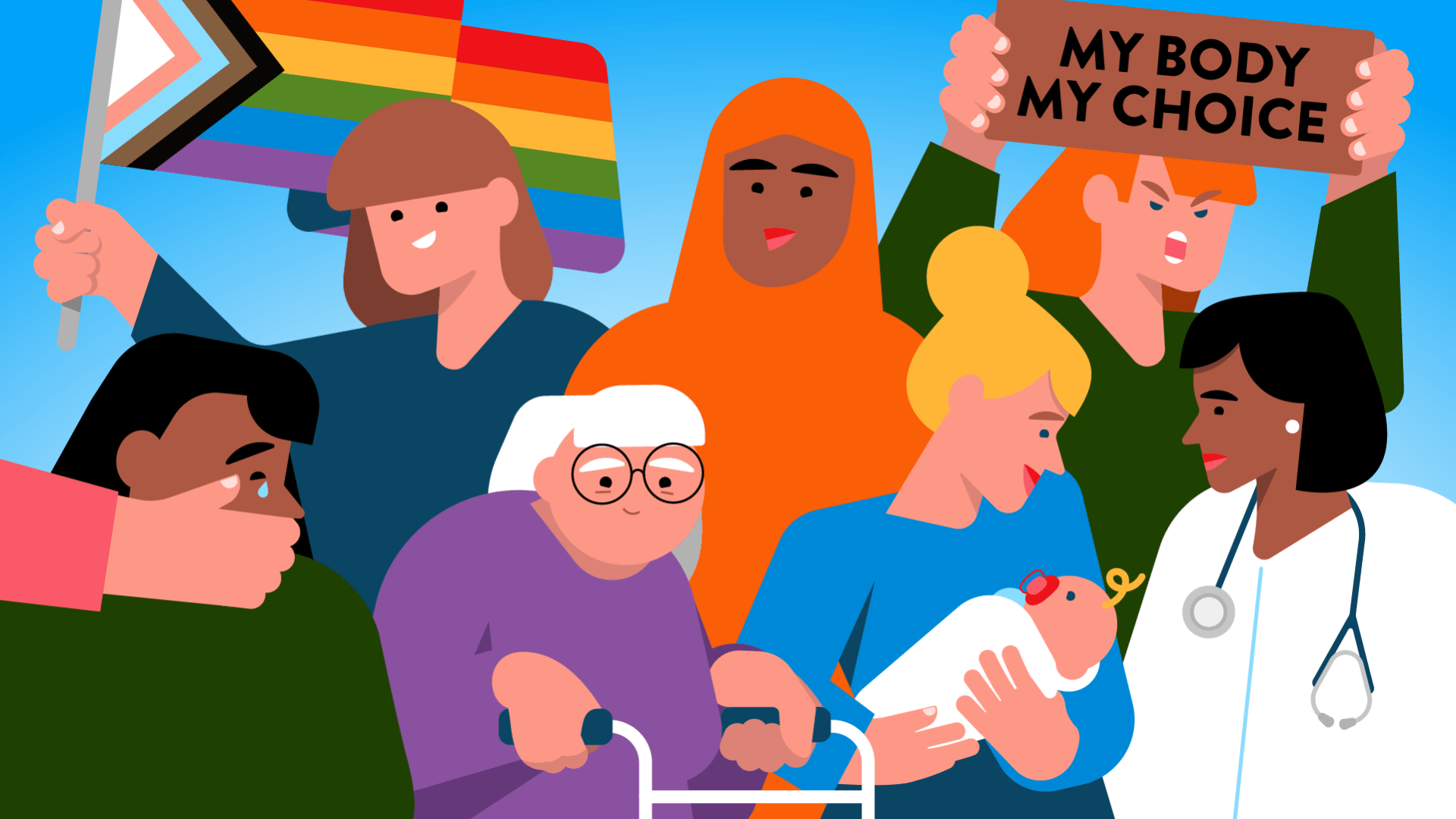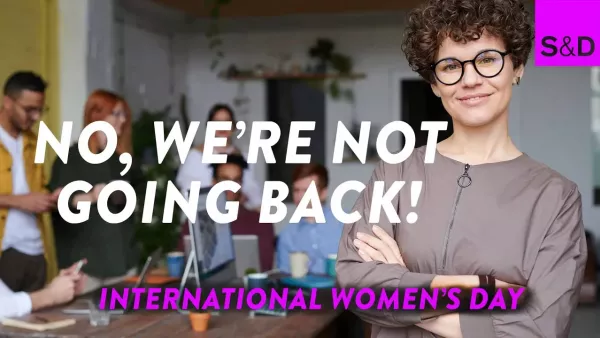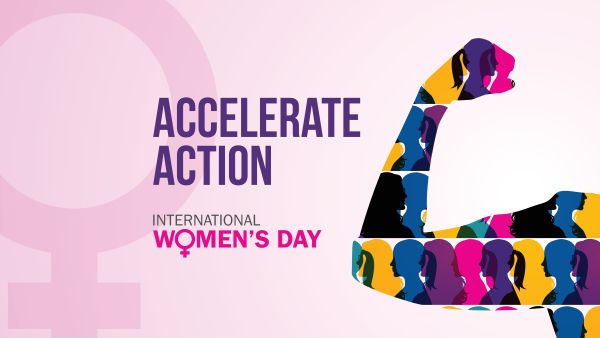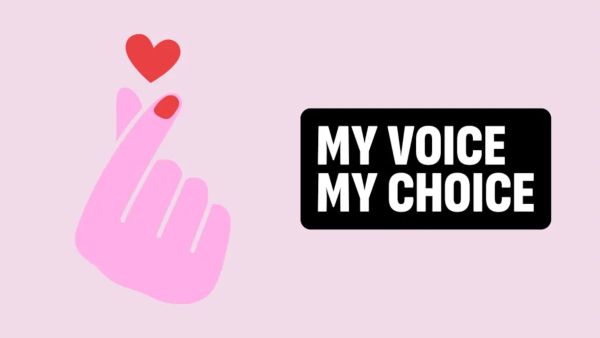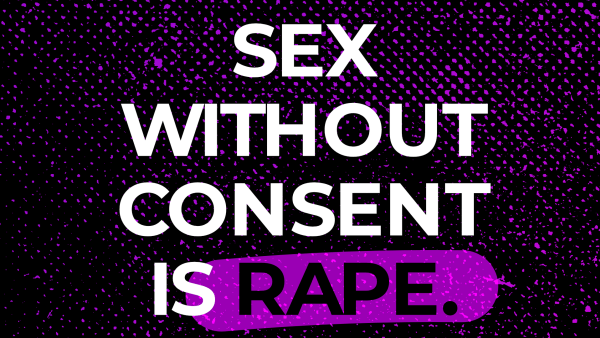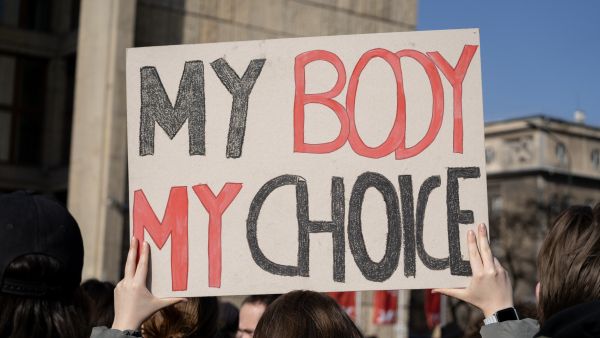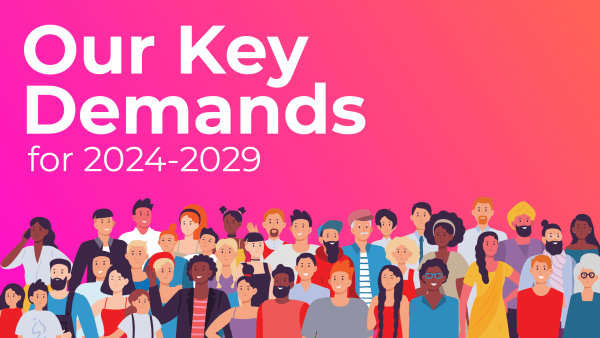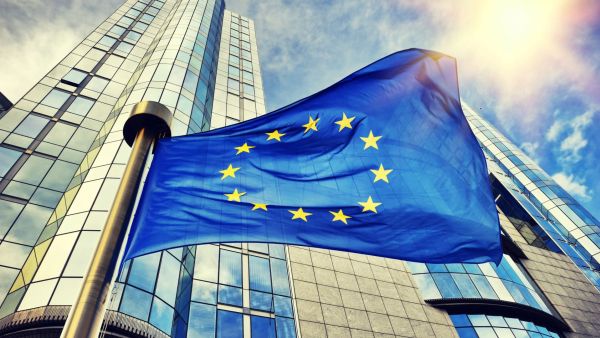We put gender equality at the heart of our work, as one of the core values we strive to uphold. Because we know that gender-equal societies are not just for women: they are happier, healthier, safer, fairer and more prosperous – for all.
Equality between women and men is a fundamental right – recognised in the Treaty of Rome of 1957, the Charter of Fundamental Rights, and is a key principle of the European Pillar of Social Rights. Although the EU is a global leader in gender equality, no member state has yet achieved full gender parity. The progress remains slow and insufficient, in the EU as well as globally.
According to the EU Gender Equality Index 2022 – released by the European Institute for Gender Equality – if we continue at the current pace, gender equality within the EU will only become a reality in 60 years from now. During the United Nations Commission on the Status of Women (UNCSW) in March 2023, UN Secretary General António Guterres stated that it would take approximately 300 years for gender equality to be achieved worldwide.
This is why we as Social Democrats don’t settle for mediocrity. We intensify our efforts in the fight. Raising awareness is not enough: We call on the EU Commission and all EU member states to gender mainstream all policies on local, national and European level and to implement gender budgeting on all levels.
To see our goals in more detail, read our Position Paper On Gender Equality & Women’s Rights.
Find out more about our work in the Committee on Women’s Rights and Gender Equality.
In Europe, seven women are killed every day by their partners or family members. What’s more, one woman in three has been physically and/or sexually assaulted at least once in her lifetime. Women and girls are also the vast majority of victims of trafficking, in the EU particularly for sexual exploitation and prostitution (57% in 2021 according to Eurostat).
Violence against women is one of the main obstacles to reaching real equality between women and men. The S&Ds keep up the fight for a tough directive that includes a strong consent-based definition of rape. But our fight doesn't stop there. We urge the Commission to submit a proposal to the Council to identify gender-based violence as an area of EU Crime, so women everywhere in the EU are protected from all forms of gender-based violence.
60% of all university graduates are women. Despite this, women in the EU earn 13% less than men do on average. This means that, compared to their male colleagues, women are effectively working two months a year for no pay. The European Equal Pay Day further symbolises these two unpaid months. In the longer term, lower salaries result in lower pensions, which can lead to an increased risk of poverty. The pension gap between women and men reaches 37%.
The S&Ds have fought for the newly adopted Pay Transparency Directive. This legislation will require EU companies to put an end to any existing pay gaps between their female and male workers by banning pay secrecy and obliging member states to set out penalties for employers that do not comply with the rules. This directive does not only take into account men and women, but non-binary persons as well; all of us shall be protected against pay discrimination, no matter the gender!
However, our work does not end here. Our Group wants to promote gender-blind CVs to discourage companies and public administrations from operating gender bias during their recruitment processes. We call on the Commission to propose an anonymised ‘Europass CV’.
Sexual and reproductive health and rights (SRHR) are a key priority for us. All individuals deserve the right to have their bodily integrity, privacy and personal autonomy respected. Nobody shall be forced into unintended motherhood, no person shall die in childbirth or suffer forced and coercive medical interventions during childbirth, and no body shall be mutilated or exploited.
Currently, abortion is still illegal in two member states (Poland and Malta). Figures show that criminalising abortion does not lead to fewer abortions, but only forces women to seek clandestine abortions in which they risk their health and their lives. This is a serious violation of human rights and a form of gender-based violence. Only education, information and access to male and female contraception can reduce the number of unintended pregnancies.
We therefore urge all EU member states to ensure universal access to age-appropriate and evidence-based sexuality and relationship education, to a range of high quality and accessible, affordable modern contraceptive methods and supplies, family planning counselling and information on contraception and to guarantee free, safe and legal abortion care.
The rights of women to make decisions about their own bodies are fundamental and should be included in the Charter of Fundamental Rights. The S&Ds also want a strong, coherent section on sexual and reproductive health and rights built into the EU's next public health strategy.

The birth rate in Europe is falling. This is partly because women and men are not always allowed adequate maternity, paternity and parental leave.
Current maternity leave legislation allows for 14 weeks minimum, with various different systems of payment across Europe. In April 2019, the Work-Life Balance Directive was finally adopted. The S&Ds fought for many years for the adoption of a legally binding instrument such as this. We therefore welcomed the introduction of paternity leave of ten working days, parental leave of four months, and carers’ leave of five days per year to workers providing personal care or support to a relative. The extension of the right to request flexible working arrangements to carers and working parents is also an achievement for which the S&Ds have fought long and hard.
We will insist that the Commission takes its responsibility to monitor the implementation of the Directive seriously so that working parents and those caring for a relative have better protection in Europe. Children are the future of the EU. While the adoption of this Directive is certainly a step forward, more needs to be done. That is why the S&Ds are also calling for real improvements in accessible, affordable, high-quality childcare to reach the Barcelona targets, so that both women and men are able to balance work and family life.
Russia's invasion of Ukraine has caused immense suffering, with civilian infrastructure destroyed, thousands of lives lost and millions displaced. Women and girls often experience migration or forced displacement differently than men and boys. During conflicts and wars, women face specific forms of violence such as sexual violence, trafficking, and exploitation. They are often also responsible for the care of children and elderly family members, which can limit their access to the labour market and socialisation. Displaced women and girls may face intersectional discrimination based on their gender, refugee experience, social status, age, race, and sexual orientation.
However, women are not just victims. More than 50,000 women currently serve in the Ukrainian military, many of whom are involved in combat operations. They are fighting and dying for freedom, democracy, human rights, and for equal opportunities for men and women, even on the battlefield. These women are brave, powerful, and they prove that women can do anything and everything.
Our Group is calling for measures to ensure that asylum procedures are gender-sensitive and that women's needs are met throughout the asylum process.
Love is love. Everybody deserves the right to love whoever they want, and be their most authentic self. We welcome the Commission in taking steps to criminalise hate speech and hate crime in the EU – mainstreaming the dimension of gender equality in the proposal.
The EU is, and must remain, an LGBTIQ+ freedom zone! We call on the Commission to take concrete measures to ensure freedom of movement for all families and on member states to introduce legislation for equal recognition of same-sex marriages and partnerships as well as an EU-wide recognition of parenthood so as to ensure full respect for the right to private and family life without discrimination. LGBTIQ+ free zones (anti LGBTIQ+ zones) must be recognised as a violation of freedom of movement and residence in the EU.
The S&Ds also call for an international convention, either on the level of the UN or the Council of Europe, to protect the rights and freedoms of LGBTIQ+ persons; as such an instrument still does not exist.
To ensure an empathic and accepting future, we want to target harmful gender stereotyping and norms at school, while strengthening sexuality education and violence prevention through gender-sensitive education programming for boys and girls.
Stereotypes widely conveyed by society are rooted in patriarchy and leave women in a subordinate role in society, contributing to discrimination, unequal pay and leading to economic dependence and the feminisation of poverty. The employment rate in 2021 for men was 78.5 % while for women it was only 67.7 % – more than a 10% gap. According to the OECD (the Organisation for Economic Co-operation and Development), the number of women taking up informal and unpaid jobs is rising. Worryingly, austerity measures have affected women more harshly than men. Budget cuts have had the biggest impact on the public sector – where many women work.
About 80% of the 'working poor' are women. Moreover, a third of older women in the European Union receive no form of pension. The feminisation of poverty is increasing: women are more at risk of falling into poverty than men.
Because of this, we welcome the Minimum Wage Directive. Low-paid and insecure jobs must be replaced by sustainable jobs. We continue to work towards this goal, calling for an end to counter-productive austerity measures and for strong gender-equality.

Women still make up a very low proportion of elected representatives in national parliaments: between 14.1% and 46.4% across the EU. Currently, in the European Parliament only 39% of MEPs are female. We would love to see this number rise in the next elections. However, our Group has almost achieved an equal gender balance, with 42% women MEPs and a majority of women in the Group's leadership team, but more needs to be done to promote equality in political life.
Women on company boards are even scarcer. On average, just 30.6% of company board members are women in the EU – whereas in Norway they have achieved 45% through introducing legal quotas in 2005.
We call for enabling a fairer representation of women in decision-making processes in politics as well as on company boards, by quota, reserved seats and zip-lists, but also by improving political and company culture, implementing codes of conduct and party statutes in order to raise awareness for gender equality. Underrepresentation of women in politics is a serious issue that poses an obstacle for fair democratic representation.
We are very proud to announce that in 2022, the Women on Boards Directive was finally passed, which introduced an open and transparent procedure to reach a minimum of 40% of women on non-executive boards of EU companies by 2026.
Sexual harassment is an extreme form of gender-based discrimination, which affects both women and girls disproportionately. 90% of victims of sexual harassment are female. Up to 55% of women have been sexually harassed in the EU, and 32% of all victims in the EU said the perpetrator was a superior, colleague or customer. These numbers are even higher when you ask women in the services sector – 61% have been sexually harassed, and that rises to 75% of women working in top management or high qualification jobs.
EU institutions must lead by example in fighting sexual harassment in the workplace. That is why the Socialists and Democrats push for stronger measures of prevention of all forms of harassment, notably sexual harassment in the European Parliament.
In 2022, a resolution that calls for mandatory anti-harassment training for all members and staff was adopted and welcomed by the S&Ds.
Unfortunately, during the recent Covid-19 pandemic, domestic and gender-based violence increased and sexual and reproductive health rights were attacked. Women were on the frontline of the Covid-19 pandemic, as they were, and still are disproportionally represented in professions with high risks of exposure in hospitals, shops, schools and care homes, and in sectors where job losses are high. At the same time, women in these sectors are rarely involved in decision-making, due to the glass ceilings in our societies.
The disproportionate effect on women requires a progressive and gender-sensitive approach, for both immediate and long-term action, on a national and EU level. We continue to call on the Commission and the member states to put gender equality and women’s rights at the heart of recovery and resilience plans. If we want to repair the economic and social damage done by crises, it is crucial we increase women’s participation in the labour market and strengthen the connection between climate-change policies, digital policies and gender equality.
For more details, see our position paper A progressive gender-sensitive approach to the Covid-19 crisis.
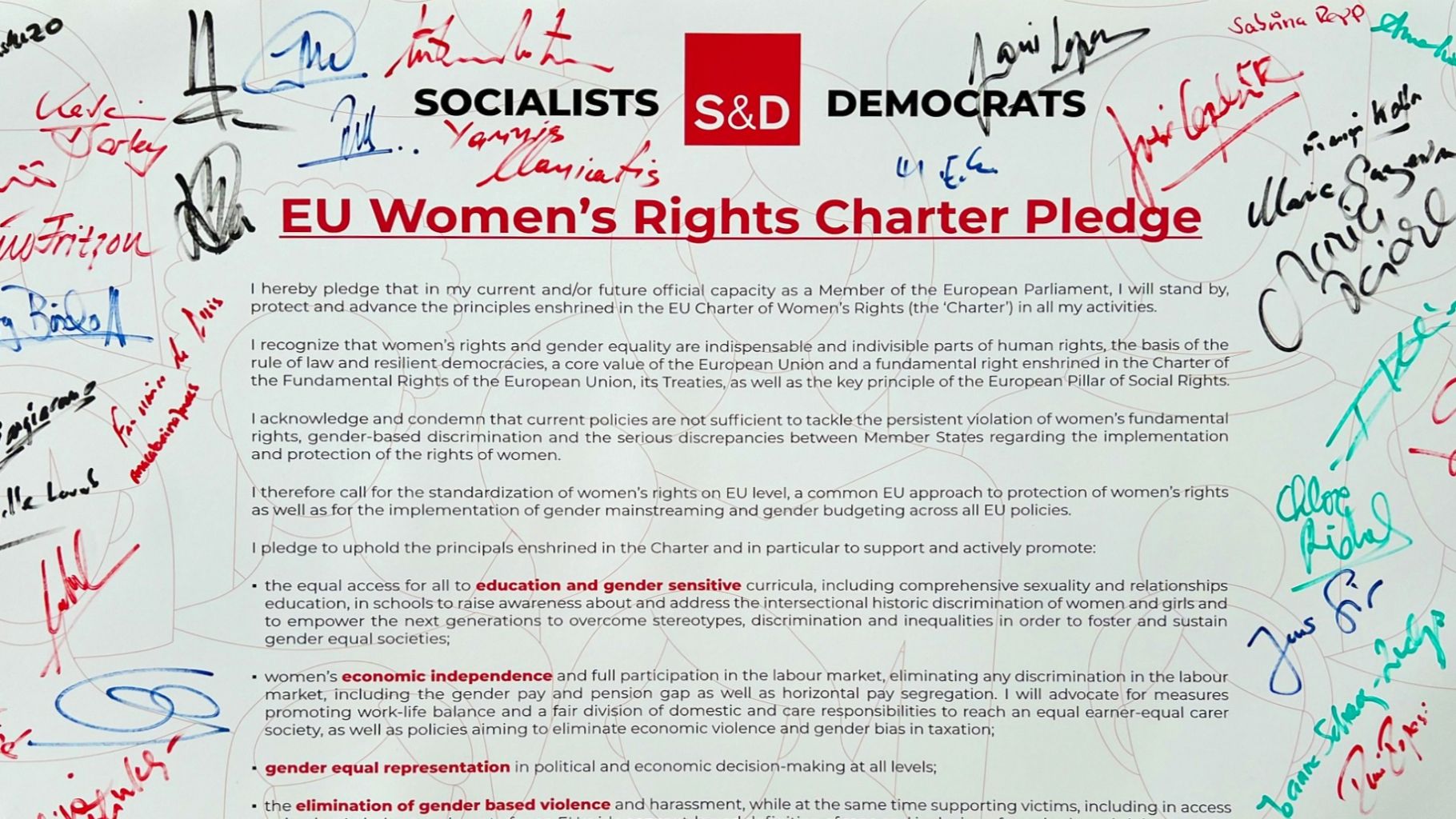
As a political family, we have always been and will always remain the champion of women's rights and gender equality in Europe. It is paramount that we bring these essential values to the agenda of the next Parliament and of the next Commission. Our core policy proposal for doing so is the EU Charter of Women's Rights, adopted by the S&D Group in its meeting in Cracow in May 2023, The EU Charter of Women's Rights is a part of the S&D position paper on gender equality & women's rights – our roadmap to making the EU work for everyone.
On Wednesday, 3 July 2024, S&Ds reaffirmed their commitment to the EU Charter of Women’s Rights.
We must use the Charter as the cornerstone of our feminist policy and push the Commission for its adoption. The Charter is a blueprint for standardisation and safeguarding achievements reached so far on women's rights across all European countries to ensure that all women in the EU can benefit from them. It covers key policy areas like gender equality in education and the labour market; SRHR; gender equality in decision making; elimination of gender based violence and others. We cannot allow for any backsliding of women's rights nor for women in one member state having less rights than in another member state.

